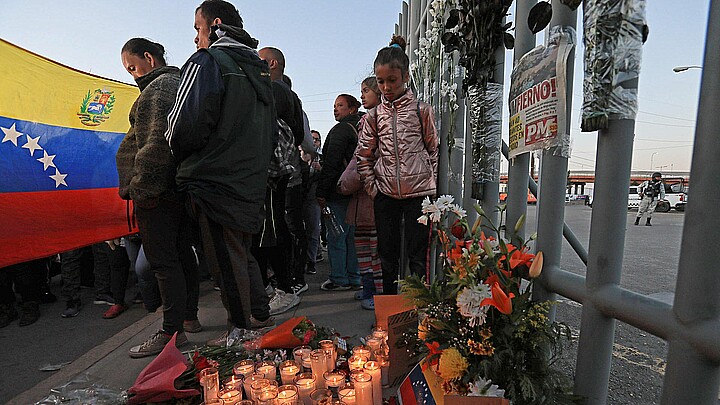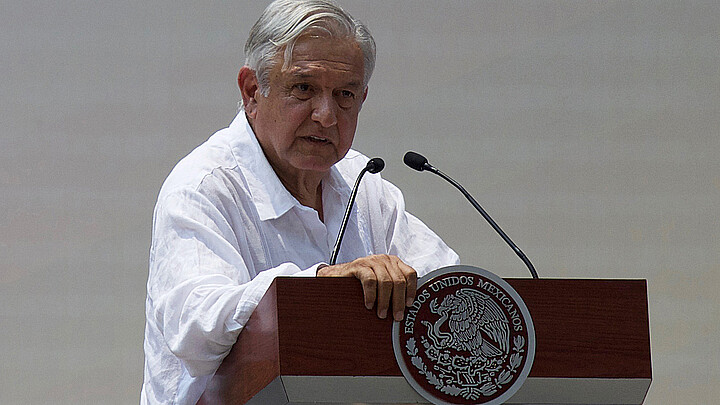Human Rights
Over 52,000 unidentified bodies in mass graves in Mexico
There are at least 63,428 mass graves registered in Mexico, in which 92,658 bodies have been buried
March 17, 2022 4:19pm
Updated: March 17, 2022 8:01pm
There are at least 52,000 unidentified bodies in Mexico's mass graves and forensic services, according to data from the National Movement for Our Disappeared, quoted Thursday by Alejandro Encinas, Mexico’s Undersecretary of Human Rights.
Acompaño al presidente @lopezobrador a la conferencia matutina para hablar de las acciones en materia forense e identificación de personas.https://t.co/fBy2BfbYFV
— Alejandro Encinas (@A_Encinas_R) March 17, 2022
Baja California, Mexico City, Mexico State, Jalisco, Chihuahua, Tamaulipas, Nuevo Leon, Veracruz, Sinaloa, and Sonora account for 41,115 of these bodies, 80% of the total, the official said at a press conference.
Since 2019, a census of human remains and bodies found in both forensic services and mass graves in the country was carried out in conjunction with the Attorney General's Office (FGR).
"At this time we have identified 37,000 unidentified persons, eight thousand of which were in forensic services and the rest in mass graves," Encinas said.
Other organizations and institutions have recorded different figures. The Quinto Elemento Research Laboratory, for example, reported 39,000 bodies, while the National Institute of Statistics and Geography's (Inegi) National Census of Justice Procurement reported 9,400.
On Monday, Inegi claimed that at least 63,428 mass graves were registered by the end of 2020, in which 92,658 bodies have been buried. More than 61,000 bodies were buried that year, 9,760 of which did not request to be identified, Infobae reported.
Inegi stated that the largest number of bodies buried is located in Michoacán, where there are at least 25,175 corpses, followed by Jalisco (17,542), Puebla (9,510) and Mexico City (9,175)
Alejandro Encinas said that there is no census of unidentified bodies, or of those identified and unclaimed in the country's mass graves. There also isnt a national genetic database that would allow the comparison of the data obtained from the genetic samples taken by the families with those taken from the bodies found.
"This genetic information is not shared. It is not compared. There are no capacities and wills and that is the main problem: lack of will to do it in a massive way and the forensic information remains fragmented. This shows that there are not only human institutional capacities, but also a lack of political will at the state level to face this crisis," he added.
Since 2021, the Mexican government accepted that there is a "forensic emergency" in the country. However, civil organizations such as the Movement for the Disappeared (Movimiento por Nuestros Desaparecidos) claim that measures to address this problem are very limited.
Official figures state that from 2006 to June 2021, 44,814 clandestine graves have been found throughout the country. Of the graves registered up to 2019 (3,631), 667 were located in the northeastern region of Mexico.










